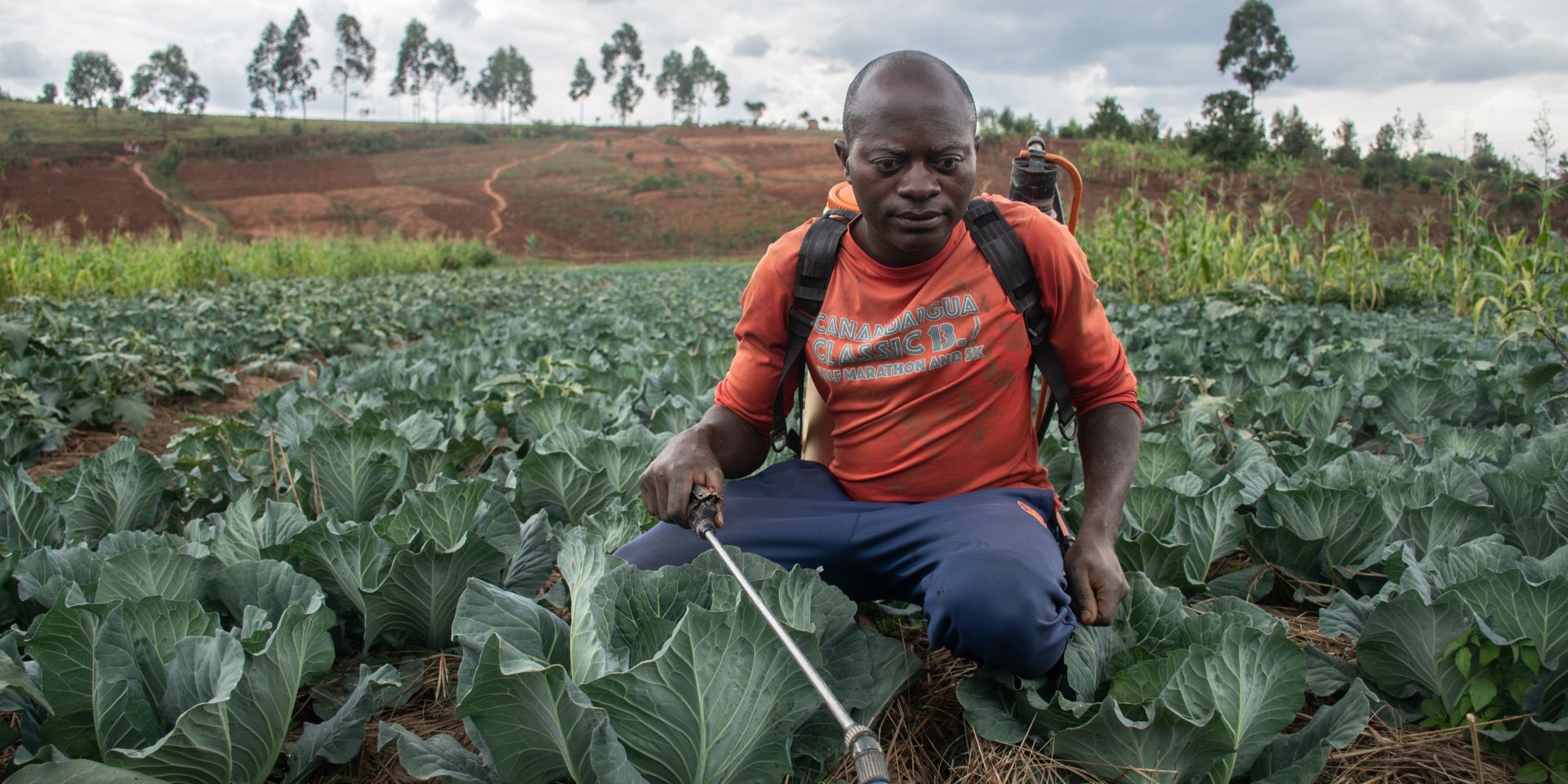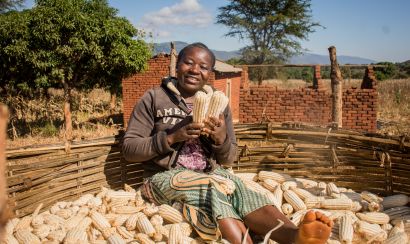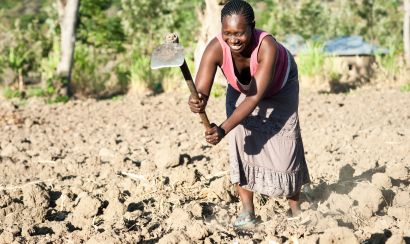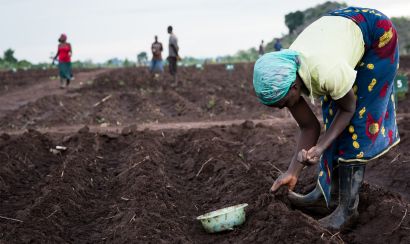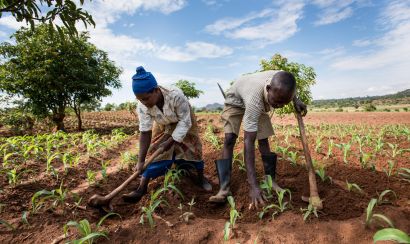Small Crops with Big Impact: Tapping into vegetable farming for farmer prosperity and nutrition
Nutrition is often associated with eating an abundance of vegetables like leafy greens, legumes, and tubers – and for good reason: these crops provide affordable sources of vital vitamins and minerals, allowing smallholder farmers to take charge of the health outcomes of their families and communities. More unexpectedly, vegetables also offer an economic edge to smallholders.
For Nsabimana Edouard, a farmer in Burundi has found success growing vegetables to increase his earning power and improve his family's nutrition.
"I started my vegetable project three years ago, inspired by a friend's success growing red onions. Last year, after applying the techniques I learned from One Acre Fund, I harvested 3.5 tons of onions, 10 tons of cabbage, and 3 tons of eggplant," Nsabimana says.
In Burundi, One Acre Fund is working with farmers to address income and nutrition challenges by encouraging smallholders to plant a variety of vegetables, such as amaranth, onion, and cabbage. In 2023, we distributed vegetable seed packages to 197 Burundian farmers and trained them on optimal methods for sowing, maintenance, and harvesting, as well as the benefits that come with vegetable farming.
The impact of vegetable farming on farmer incomes
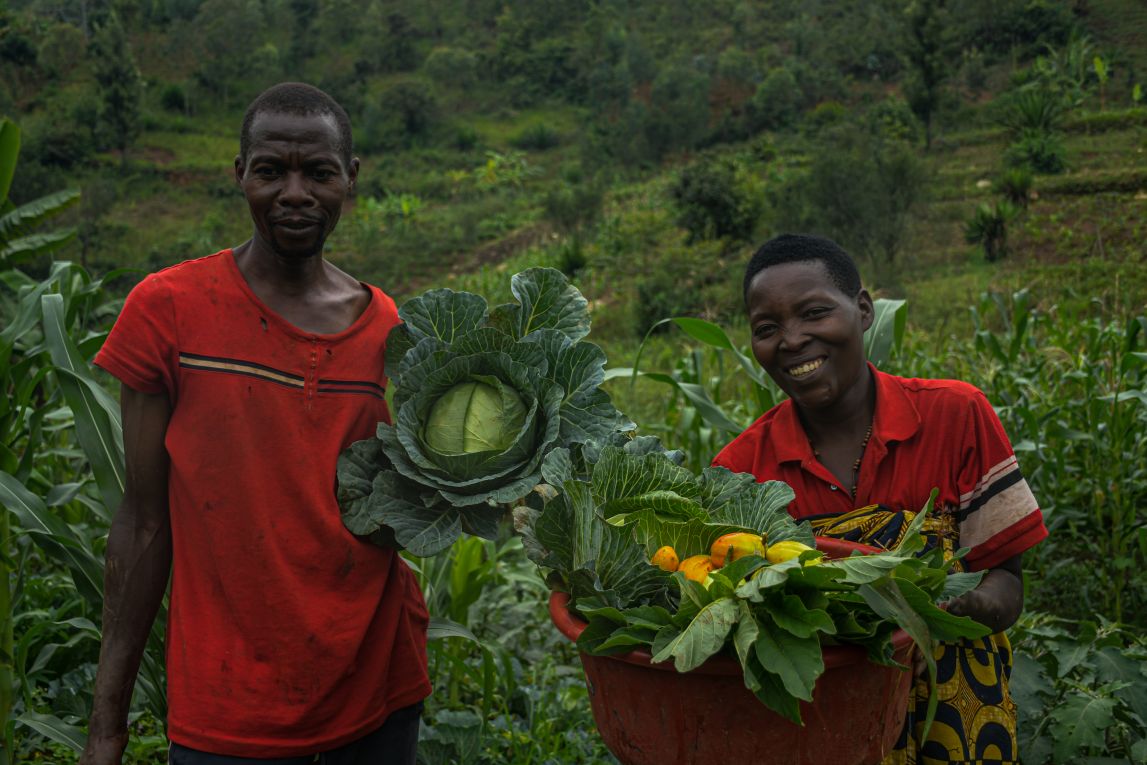
Unlike grains - many of which are harvested once every cropping season -, many vegetables provide continual income over time because farmers can harvest a little each day for home consumption and sale. Selling this produce in local markets or to larger distributors also creates an income stream they can depend on, which is a highly impactful revenue machine for those living in rural communities, where job opportunities are hard to come by.
Thirty-five-year-old Nitunga Simeon and his wife, Bigirimana Hyacinthe, from Rutegama District in Burundi, grow cabbages, eggplants, onions, cabbage, amaranth, and tomatoes. The couple started their vegetable farm as a source of extra income and to provide their two children with a balanced diet.
“We produce 600 kgs of cabbage per harvest, 400 kgs of eggplant, and 200 kgs of onions. Last season, we generated 2,500,000 Burundian Francs ($887) from vegetable sales. We have since expanded our farm and bought a cow and four pigs,” Nitunga says.
Vegetable farming often requires less land than conventional crops like maize and beans, meaning farmers can produce bigger harvests on smaller plots of land. Nsabimana’s large vegetable harvest occupied 0.17 acres of land—meaning that for Nsabimana and others like him, large land sizes are no longer a prerequisite for generating money. Vegetable farming allows farmers to make the most of available agricultural land, and is a good way for farmers with small plots to kickstart their agri-businesses.
Vegetable farming also helps farmers create livelihood stability. By growing their own vegetables, farmers can reduce their dependence on expensive and often unreliable food markets, improving their resilience to external shocks, such as price spikes or supply chain disruptions.
How vegetable farming helps farmers optimize resources
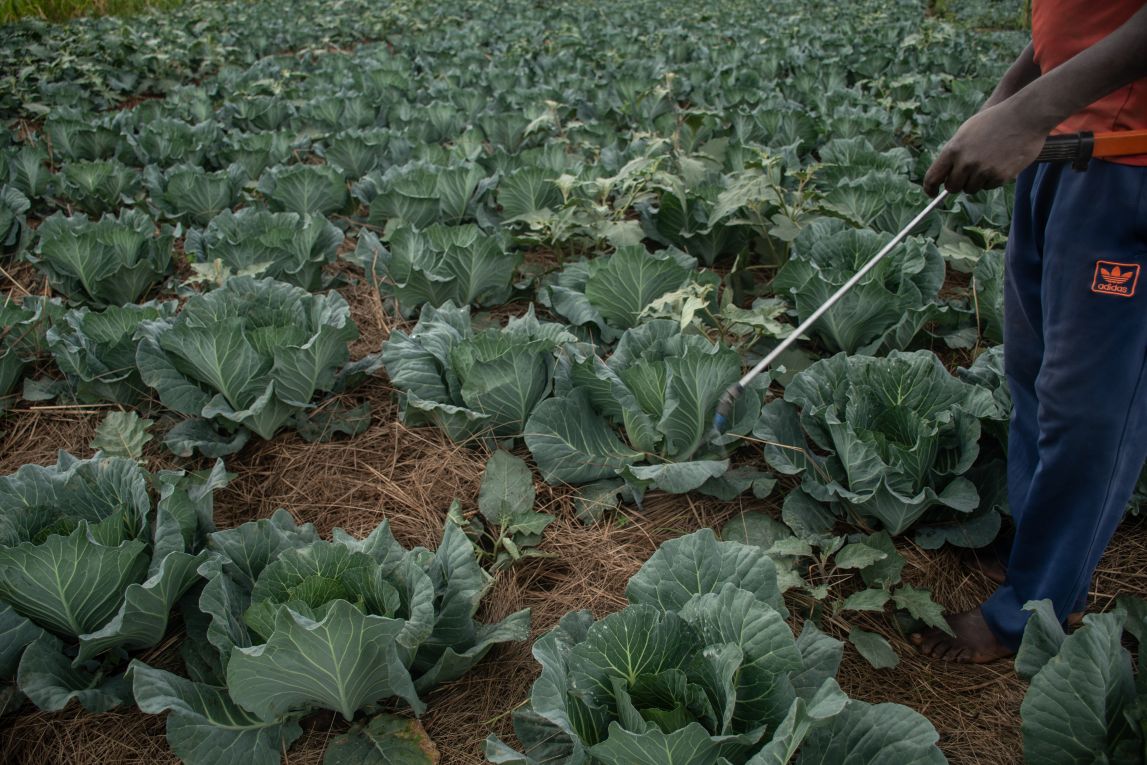
Vegetable farming provides significant advantages for farmers looking to manage resources effectively. The crops have a lower water requirement compared to others, enabling farmers to conserve soil moisture and optimize water allocation for agricultural purposes.
When farmers incorporate crop diversification, which often includes the cultivation of vegetables, they can help mitigate crop failure due to extreme weather events. Crop diversification also provides farmers with an alternative source of income and minimizes the financial risks associated with potential crop failure.
For farmers, the cultivation of vegetables offers the added benefit of acting as cover crops to enhance soil health and productivity. When strategically implemented, vegetables can shield the soil from erosion, conserve moisture, and effectively suppress weed growth.
During the harvesting time, vegetable waste can be efficiently utilized for composting. Composting vegetable waste yields rich organic matter, which enhances soil nutrient content and structure when added back to the soil.
Together, all of these factors—improving how farmers can manage their water supply, harvests, and soils, through vegetable farming—mean farmers can optimize resources, lower production costs, and improve overall profitability.
Our work with Burundi’s vegetable farmers highlights a pathway to increased incomes, improved nutrition, and better agricultural resource management. Looking ahead, One Acre Fund hopes to scale this impactful venture to reach more farmers in our mission to improve the farmer prosperity and build a more resilient agricultural system for the future.
